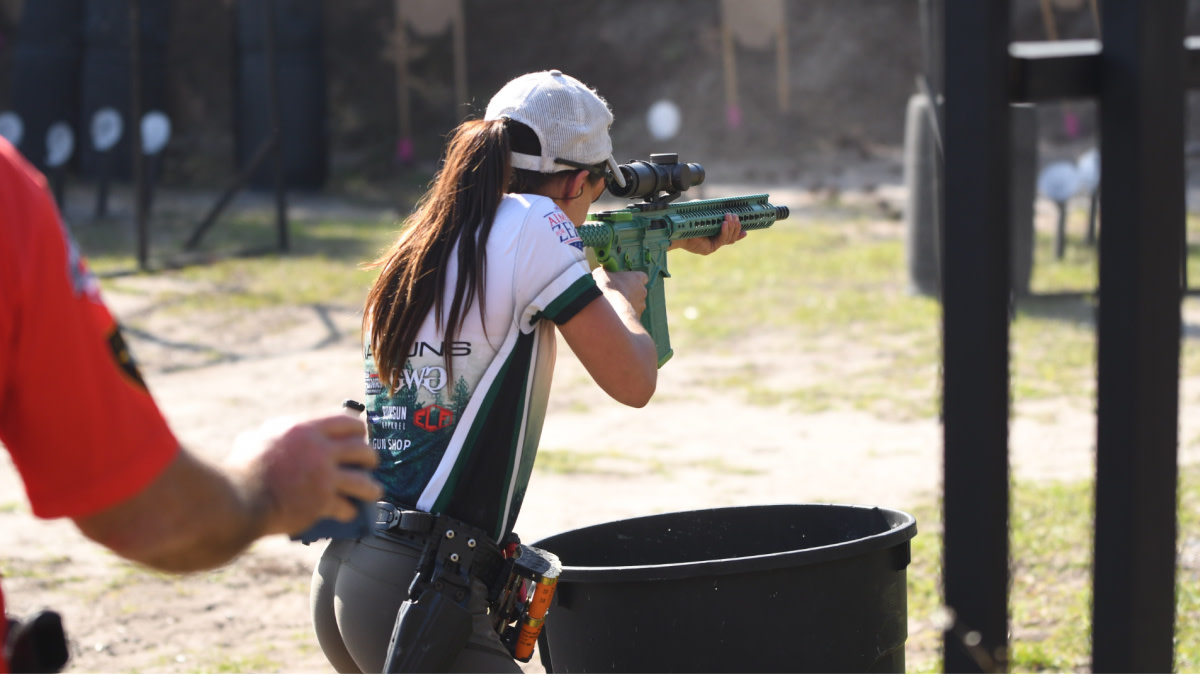
The first time Steve and I met, we sat on a patio discussing competitive shooting and hunting. The conversation was exciting as we connected the dots on how closely related the two really are. Competitive shooters and hunters tend to exist in separate worlds, but many of our methodologies can be helpful to one another. In an effort to bridge that gap, here are four things hunters can learn from competitive shooting.
Stress Management
The most important skill hunters can learn from competitive shooters is stress management. Adrenaline, if not managed properly, can ruin a hunt. High stress situations can exponentially increase your chance of missing a shot or hesitating at the wrong moment. Stress management is one of the biggest factors in the mental game of hunting.
One does not learn how to handle stress if it is only experienced in the field. Imagine for months you’ve prepared for a hunt, but when it comes time to pull the trigger. an adrenaline drop causes your hand to shake. Inevitably, your accuracy is going to decrease.
Competitive shooters continually train under stress so during a competition they can think and act clearly. It’s ironic how adrenaline is often what hooks hunters and competitive shooters, but it is also something that must be trained out.
Precision rifle shooting (PRS) is an excellent example of cross-training, especially if you are a long-range big game hunter. Shooting a match is the closest you will get to replicating the feeling experienced when on a hunt. With the pressure of having to hit multiple targets from multiple positions under the timer, adrenaline kicks in. PRS shooters practice breathing techniques and learn how to lower their heart rate to make the most successful shots. Hunters can do that, too.
Gear
Competitive shooters are all about the gear, seeking anything to give an edge. In general, hunters purchase gear and rarely improve upon it. By getting creative with equipment, hunting can be easier and more efficient. I’m not telling you to go out and buy a bunch of gear, but instead find your biggest friction point and address it. Would you like to be able to load your shotgun quicker or make holding your rifle more comfortable? It’s all in the gear.
If you have something that needs improvement, chances are competitive shooters have found a solution. For instance, having a cat tail on a rifle scope makes dialing in easier and bags provide more stability. From shell caddies to custom-fitted guns, hunters can take a page out of competitive shooting’s book on gear innovation. Gear upgrades can be as simple as modifying what you already have.
For example, sporting clays directly relates to wing shooting, and having a custom fit over-under is one of the most common modifications. A shotgun that fits perfectly is far more likely to hit every clay or wing.
System
Systems are the methods one creates to make competing or hunting more streamlined. Basic systems, such as pack lists, all add up. You don’t want to stress about the little things—you need to focus on your job, which having systems in place helps with. Beginners often grab their gear and fly by the seat of their pants. By having systems in place, you will be less likely to forget your range finder or overlook a part of the landscape that can interfere with a shot. Think out every step from scouting to packing your harvest for transport.
Create a packing list for starters. This may seem novel, but competitors like Jerry Micheleck and hunters like Steve Rinella both live by their lists. Nothing will dampen your day like forgetting gear—it’s happened to us all. Write out a basic list of everything you need, from clothing systems to tools for your scope. If you go on different types of hunts, make lists specific to those. Could your waterfowl hunt turn into an upland hunt, thus requiring different shotshells? Are you planning on a moose hunt where recovery might require winches? Write it all out.
Training
Training is brought up last because this is the most obvious take away. Hunters have a reputation for sighting in their rifles once a year and hitting the fields with no further practice. The goal of competitive shooters and hunters is the same: make a shot count in the moment of truth. So why not put in the deserving amount of effort?
If you were to go to the range and test your skills on distance, chances are there would be some lost shots. The more you practice, the more shots you’ll make—it’s that basic. Just as a competitor doesn’t want to risk missing a shot during an important competition, a hunter shouldn’t risk making a bad hit.
Training is more than just shooting, though. It involves rehearsing movement in transitions, being able to estimate ranges, and wind calls. Training should incorporate all the elements which compose setting up and breaking off a clean shot.
Do you need to compete to learn these skills? In short, no. Although I encourage all firearm enthusiasts, especially hunters, to give competitive shooting a try. Consider taking a marksmanship class, practicing with a timer, and developing systems to ensure everything is executed efficiently and effectively. There are many other tips hunters can learn from competitors, but these by far are the most crucial.




